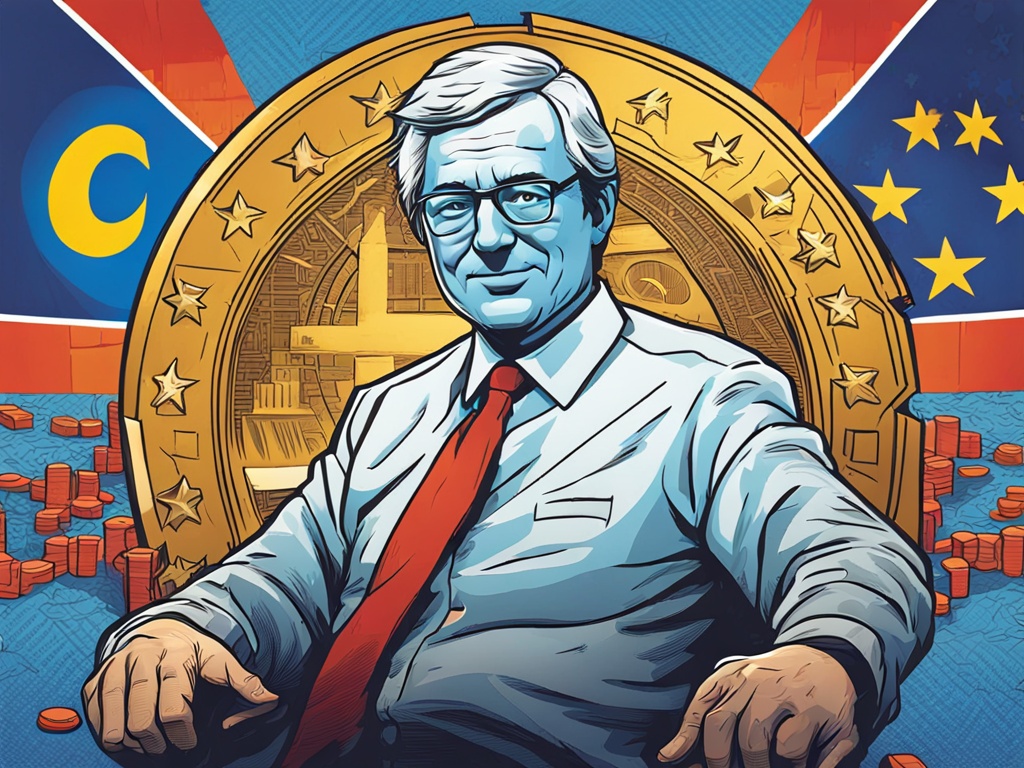Stefan Berger Resigns Amid Digital Euro Legislative Doubts 💼🇪🇺
The resignation of Stefan Berger, who led efforts for the digital euro within the European Parliament, is an important development in the quest for a unified digital currency in the eurozone. His departure, which was announced to dissolve any doubts regarding potential obstructionism by German center-right individuals, aims to expunge any suspicions surrounding the progress of this initiative. He stated it was essential for someone without prior ties to oversee the continuation of this crucial legislative work.
Digital Euro Initiative Faces Challenges 🪙💰
The primary goal of the digital euro project is to establish a virtual form of euro currency, which can facilitate payments within the eurozone, thereby lessening reliance on non-European payment systems. However, the initiative is encountering significant public resistance, particularly in Germany. Opinion polls show that nearly half of the German population is hesitant about adopting a digital euro. This skepticism can be attributed to a longstanding preference for cash transactions and a distrust of digital payment methods.
Concerns have also arisen among smaller banks in Germany, which fear that the introduction of the digital euro might lead to reduced deposits. If customers choose to deposit their funds in the digital euro instead of traditional accounts, this scenario could sever the banks’ funding sources. The implications are critical for smaller institutions that depend on maintaining customer deposits for their financial health.
Small Banks Welcome Change Cautiously 🚨🏦
Smaller German banks are particularly alarmed about the ramifications of implementing a digital euro. The enthusiasm for digital currencies conflicts with a prevalent cultural inclination towards cash. These banks caution that a shift to digital could instigate sudden withdrawals of deposits, potentially resulting in destabilizing bank runs. Berger highlighted that once deposits move to digital euro accounts, those funds move beyond the reach of banks, which traditionally retain authority over deposited money.
Further complicating matters is the unique historical context of Germany, where trust in digital payment systems can be tenuous, shaped by previous experiences with authoritarian regimes. This context contributes to the widespread public wariness regarding surveillance and security issues linked to digital finance.
Leadership Transition Ahead 🔄🤔
In light of these challenges, the European Parliament is poised to appoint a new leader to take over Berger’s responsibilities. Markus Ferber, a German MEP and center-right economic coordinator, is expected to make this selection in the near future, with Fernando Navarrete Rojas, a former central banker from Spain, being among the candidates under consideration.
Berger’s approach to leading the digital euro initiative has faced criticism for perceived delays and inadequate scheduling of discussions among relevant stakeholders. Detractors suggest that his leadership has hindered the democratic process crucial to shaping this legislative initiative. As a result, the European Central Bank (ECB) and the European Commission are advocating for an expedited legislative framework to facilitate the introduction of the digital euro.
Skepticism and Criticism Surrounding the Project 😟📉
The climate surrounding Berger’s tenure was characterized not only by political tension but also by the ECB and European Commission’s urge to advance this project effectively. Ursula von der Leyen, the Commission’s president, has charged key officials with accelerating developments in this area. Furthermore, Joachim Nagel, president of the Deutsche Bundesbank, has publicly reassured the public that privacy considerations will be prioritized as discussions progress on the digital euro’s future usage.
These ongoing discussions highlight the complexities and mixed sentiments that surround the digital euro project. Various stakeholders ranging from members of the European Parliament to the general populace express a need for thorough assessments before fully committing to this groundbreaking initiative.
Hot Take: Looking Towards the Future 🧐🔮
As the digital euro project proceeds, the challenges posed by public skepticism and institutional concerns require careful navigation. The future of this initiative hinges on establishing trust among the populace and ensuring that financial instruments align with the values of those they are meant to serve. With leadership changes on the horizon and ongoing dialogues within the Eurozone about the digital euro’s implementation, it is essential to foster an environment conducive to meaningful discussion and progress.
Maintaining a keen awareness of these developments will be crucial as the digital euro initiative evolves. Observers will be watching closely how the new leadership addresses both the concerns of small banks and the general apprehension among the public regarding digital currency.





 By
By
 By
By

 By
By
 By
By
 By
By